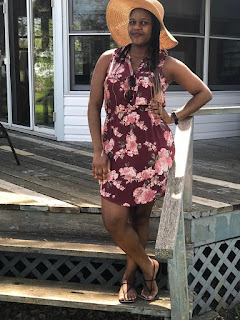By Taylor Wilson, 2nd year MDP student
Like you may have read from my colleagues, COVID-19 has had an incredible impact on our lives. Not only have we had to change the way we live such as physical distancing and wearing masks when we are out to protect ourselves and others, but it has also had an impact on our education. We are fortunate enough to be in a program that has so far been incredibly flexible during this pandemic but also made sure that we are doing okay. Being a student during these kinds of times is difficult for many reasons. Some learn by doing and being at a desk can prove a challenge. Others have families or people they take care of and balancing school, work, and home, while caring for others can be hard. Some of us have family or friends who essential workers or health complications that put them at risk and so we worry which makes it hard to focus on school. With everything shut down, some even have had no source of income that can be stressful on top of the stress of school. I’m sure many people that aren’t students understand these struggles as well.
 |
| Zoom meeting with Lisa Young, Taylor, Dr. Shailesh Shukla and Kirsten Witwicki |
For my placement I had initially planned to work with Dr. Shailesh Shukla in my home community, Fisher River Cree Nation. He has had a longstanding relationship with many people from the community and recently released a cookbook with them. I was to spend my summer back in my home territory, learn more about my traditional food system, and work with youth to develop a food guide, or something similar. I’ll detail a little more about why I chose not to continue this research in a later blog, for now I will talk about how I adjusted. I had planned to do field research and so Shailesh and I brainstormed on what I wanted to get out of my placement. I really want to continue working in academia and potentially teach. So, we shifted so I can build skills in those areas. I was fortunate enough that a Masters in Indigenous Governance student, Lisa Young, needed some help with her thesis and I love doing analysis. I’m thankful for her kindness and letting me work with her on it. It provided me with the insight of what it is like writing a thesis as MDP doesn’t do theses. I did analysis for her using NVIVO (a qualitative data program), helped her settle on themes and subthemes, choose quotes, and find sources that supported her work. I also took a class with Shailesh in the Winter term and he wanted to revise the syllabus, so I took up that challenge as well. I updated the course description and objectives, the reading list and schedule, and the assignments. I really enjoyed this project as I found a new appreciation for the intensive work it takes to design a course that will allow for students to learn in an innovative and engaging way.
While it seems like my placement went smoothly, by saying it did I would be lying. It was a challenge. I had to re-adjust to learning and working in an environment that I normally relax in. It definitely took some re-training of habits. Putting myself on a schedule and trying not to get distracted was something of a challenge. I thank a method I learned from a colleague, Ashley Saulog, called the Pomodoro Method. Where you work for 25 minutes, break for 5 minutes, and repeat until a task is done, then you break from 30 minutes. It really helped me stay focused on major tasks. I am also one of the many people who struggled with their mental health during this time, so learning how to ask for help and take breaks was hard for me, as an independent person. I realized during this time, that taking care of myself is more important to me and to others. I am thankful for Shailesh and MDP for being understanding and patient during my mental health journey as some don’t have luxury of this kind of support. I now know moving forward the importance of self-care, time management, and working for quality, not quantity.
Talk soon, Taylor.
 |
| My work space |














